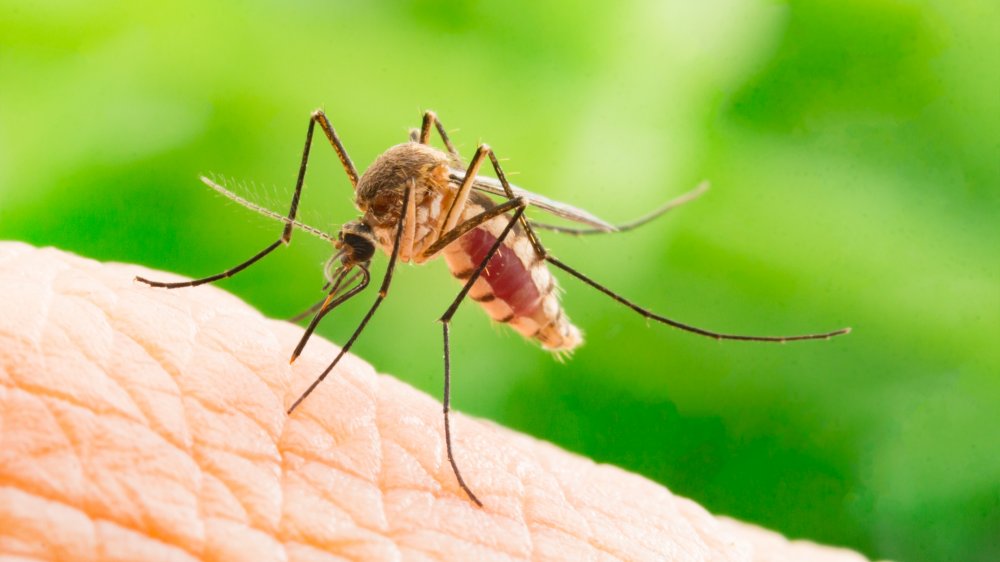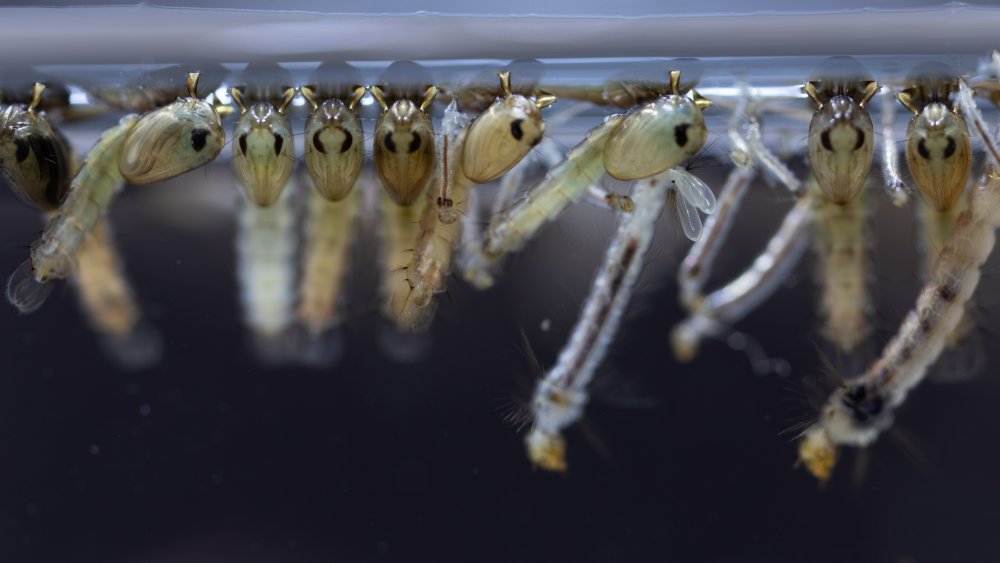What Really Happens To Mosquitoes During Winter?
They're the bloodsucking, biblical plague of the summer months. Just when the weather starts to take a turn, and we dare to venture outside our houses for pool parties, barbecues and long walks on the beach, they descend upon us in great, seething swarms, gnashing their probosci at our warm, exposed flesh and transmitting pathogens like malaria, West Nile and Zika. According to the CDC, mosquitoes are the deadliest animals on Earth, taking over 1 million human lives every year — mostly through transmission of malaria. That's pretty scary, but even if they don't make you sick, an irritant in their saliva causes their bites to leave unsightly and itchy welts that can swell and become infected. Mosquitoes suck hard, no matter how you slice it.
Mosquitoes are widespread, difficult to kill and endemic to most of the world. Even the most devoted sun child would have to admit that they're one of the worst parts of summer. Of the over 3,000 species described in the world, 176 terrorize the US. Despite their virulence, most mosquito activity reaches its peak during the dog days of summer and then declines swiftly as temperatures dip below 50 degrees. But where do these little flying vampires go once the weather turns cold?
Most species of mosquito hibernate
They don't fly south for the winter, that's for sure. Exactly how different mosquito breeds cope with winter weather depends on the species, but most enter into some form of winter hibernation. According to MegaCatch.com, the Aedes aegypti (the mosquito breed responsible for diseases like Zika, dengue and Yellow Fever) hibernate in their larval phase. Once the temperatures start to dip, Aedes mosquitoes will quickly deposit their eggs in a pool of standing water where they sit in a state of suspended animation, awaiting the return of the summer heat.
All mosquitoes are cold-blooded little pests (shocker), and they can't tolerate temperatures much lower than 50 degrees for any sustained period of time. Any significant cold snap will send them flying for the breeding pools. For this reason, it's a good idea to maintain solid mosquito hygiene even in the winter months. Always empty any pools of standing water around your home, and be specifically wary of containers like cisterns, bird baths and tires. Aedes only need an inch of standing water to lay their eggs, and a mother can deposit her entire clutch in a pool as small as a bottle cap.

